Best Website Builders for Small Business: Compared for 2024
If you click to purchase a product or service based on our independent recommendations and impartial reviews, we may receive a commission. Learn more
Looking to set up a website for your small business? Not sure which website builder best suits your business priorities and needs? Need to sell online? We’ve carried out in-depth research to bring you our top choices – and Shopify is the best small business website builder.
The Best Small Business Website Builders
- Shopify – For selling products or services online
- Wix – For promoting your small business
- Squarespace – For stylish designs
- GoDaddy – For expert guidance
- Hostinger – For selling as a side hustle
We’ve narrowed down our list to the top five small business website builders and Shopify is the best overall. It offers unbeatable ecommerce features, including customizable checkout pages and native POS systems, making it a great option for businesses looking to sell products or services.
Below, we’ll discuss all of these website builders in detail to help you find the right fit for your small business, whether you’re looking to get online quickly or you’re after features to help you promote your brand. We know these are some of the key factors small businesses care about.
If you’d rather have someone talk you through the key pros, cons, features, and pricing of our top five builders, watch our video comparison:
Why you can trust us
At Website Builder Guide, our unbiased reviews, guides, and comparisons are backed up by solid research, data, and hands-on testing. Our team conducted over 200 hours of research to bring you our independent recommendations of the top website builders for creating your own site.You can read more about our unique research methodology here.
How to Choose a Small Business Website Builder
Unsure which website builder to choose for your small business? You should identify your priorities and needs before committing to a plan.
- Looking to sell online? Consider Shopify, which comes jam-packed with powerful ecommerce features to help you sell and market your products to customers.
- Want to grow your audience? Wix is your best bet for impressive marketing tools and personalized SEO support.
- Is a stylish website a priority? Squarespace’s gorgeous designs make producing a stunning website easy.
- Need a helping hand? If all of this seems overwhelming, try a website builder like GoDaddy that offers expert guidance.
- Want AI support? Hostinger’s time-saving suite of AI tools makes it easy for beginners, side hustles, and small businesses to get online quickly.
Another key factor for beginners or small businesses just starting is affordability. You don’t want to make a large dent in the budget right away, and there are plenty of cost-effective website builders to choose from. You can review the cheapest premium plans of our top choices in the table below:
 |  |  |  | |
| Shopify | Wix | Squarespace | GoDaddy | Hostinger |
| Starting from | Starting from | Starting from | Starting from $9.99 | Starting from
Currently discounted at $2.99 + 3 months free (starting with the 48-month plan) |
| Value for Money 3.2 | Value for Money 3.7 | Value for Money 4.0 | Value for Money 4.2 | Value for Money 3.7 |
| Free plan or free trial 3-day free trial | Free plan or free trial Free plan | Free plan or free trial 14-day free trial | Free plan or free trial Free plan | Free plan or free trial 30-day free trial |
| Visit Shopify | Visit Wix | View Squarespace | Visit GoDaddy | Visit Hostinger |
As you can see, GoDaddy is the best value for money, with its premium plans starting from $9.99 per month (billed annually). But, depending on the needs of your small business, we recommend checking out more premium options, such as Shopify or Wix, if you want access to advanced features or ecommerce functionality. You can also check out our list of small business website examples for inspiration.
Take our short quiz to receive a personalized website builder recommendation:
Best for Selling Products: Shopify
Shopify
Best for selling products
- Simple product backend
- Extensive app store
- Good for scalability
Free trial available
Paid Plans: $29 - $299 / month
Pros
-
Sell on socials like TikTok
-
Ideal for complex inventories
-
Manage business bills easily
Cons
-
Not suitable for small-scale stores
-
Lack of tutorials
-
Heavy reliance on apps
If you need your small business website to focus on showcasing products and converting traffic into customers, you’ll want a powerful ecommerce website builder that offers high-quality sales features, such as inventory management tools and multichannel integration. You might already be signed up to a website builder, so it’ll just be a case of upgrading to an ecommerce-friendly plan.
To cut to the chase, Shopify has the best sales features on the market. The range and quality of Shopify’s ecommerce tools, including abandoned cart recovery, tax calculation, and the option for discount codes, make it a powerful solution for small businesses of any size that want to sell online.
We wouldn’t recommend Shopify if you only have a few products to sell, though – you’ll get the most out of the platform and its sales tools if you have a complex or growing inventory. If you’re just starting out, we suggest looking at Wix, which is better suited for smaller product catalogs – you’ll need to upgrade to a higher plan for unlimited storage and advanced sales tools, such as automated sales tax. These features are available on Shopify from its cheapest plan.
- Shopify pricing: Shopify’s plans range from $29 to $299 per month (billed annually). Get started with its 3-day free trial before receiving your first month for $1 if you choose the Shopify Basic plan. This is a good starting point for small businesses, providing unlimited products and up to 1,000 inventory locations.
I’d recommend Shopify as the best option for small businesses because of its simple backend tools that let you add products easily, as well as its huge app store which is great for helping small businesses grow and adapt. You’ve got apps like TikTok that can help grow your audience or Klaviyo which is great for setting up email & SMS marketing!

Multichannel Selling
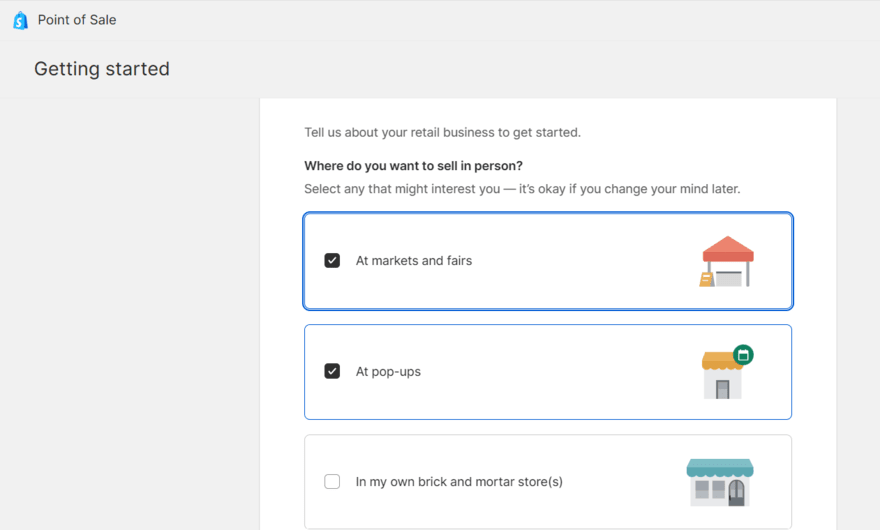
When it comes to multichannel integration, you can connect Shopify with its POS system for offline selling, a range of social media platforms, including TikTok and Instagram, or online marketplaces. We like that Shopify merchants can download the Shopify Marketplace Connect app to gain access to marketplaces like eBay and Amazon. This helps you meet customers in the places they’re already browsing and shopping, so you don’t need to rely on your website as the sole channel for sales.
I built my small business website with Shopify...
Q&A
When did you start using Shopify, and how long did it take to build a website?
What do you like most about Shopify?
Does Shopify support your website’s growth? Is Shopify a good website builder for small businesses?
Payment Options
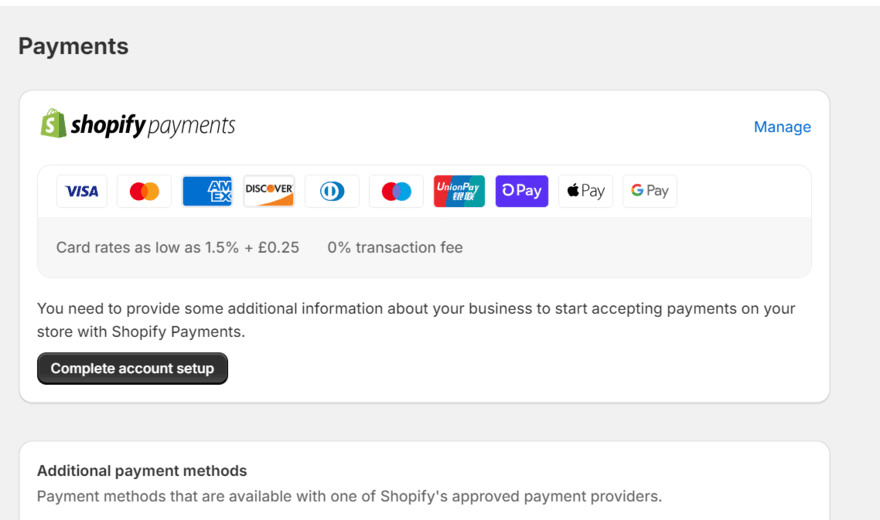
Any small business looking to sell products should ideally offer a range of payment options to customers – this increases your chances of landing a sale, since customers have more choices when completing their purchase. In practice, this means you want a payment gateway that supports all of the main credit card types (Visa, Mastercard, and American Express) and potentially other payment options, such as PayPal, Amazon Pay, and Klarna.
Shopify supports over 100 different payment gateways, as well as Shopify Payments which eradicates transaction fees if chosen. Using Shopify’s native payment gateway is the easiest way to take payments through the website builder, making the checkout experience more convenient for both the business owner and the customer.
We also think it’s worth mentioning Shopify Bill Pay, a new feature from our top-rated small business website builder that helps stores manage and pay business bills through Shopify’s dashboard. This helps business owners keep everything in one place.
Security
If you’re considering selling online, you must ensure your security is airtight. Shopify provides a built-in SSL certificate, two-step verification, customer logins, and ensures your website is PCI compliant. The majority of these measures are offered by all major website builders, but we liked Shopify’s additional fraud analysis tool which helps small businesses recognize fraudulent orders.
Making sure you have good website security is critical when selling online – you want your customers to have confidence that your website will keep their data secure. With Shopify, you can rest assured that your website and small business are in safe hands.
Read our Shopify Review for more information.
| Latest Shopify News |
|---|
| Shopify recently rolled out its Semantic Search feature for Shopify Plus users. The tool analyzes product imagery and descriptions, using these findings to improve search results for users when they look up specific items on a Shopify website. |
Best for Marketing Your Business: Wix
Wix
Best for marketing your business
- Personalized SEO
- Easy marketing setup
- Well-rounded features
Free plan available
Paid Plans: $17 - $159 / month
Pros
-
Email marketing with cheapest plan
-
Keyword support from Semrush
-
New AI features introduced
Cons
-
Not ideal for growing businesses
-
Interface can be overwhelming
-
Pay more for better marketing
Looking to promote your business online and grow your audience? Need help optimizing your website for search engines? A good website builder should support your marketing efforts so you can get more eyes on your website and small business.
Wix is our top choice, providing a diverse range of website features and high-quality marketing tools, such as:
- Built-in email marketing
- Internationalization features, supporting 180 languages and auto-translation
- Keyword support from Semrush integration
All of these features from Wix support your business efforts to promote your website and expand your audience reach. The great thing about Wix is that the majority of tools are built in and you can start building your website for free – though we recommend upgrading to one of its premium plans to remove ads and unlock additional features.
With other builders, like Shopify, you’ll need to browse a large app market for additional features, such as email marketing. But, do you have time to shop around for the right third-party apps or would you rather have everything at your fingertips within your website builder’s dashboard?
- Wix pricing: For a professional small business website, choose one of Wix’s premium plans, ranging from $17 to $159 per month (billed annually). Marketing power differs with each plan, so make a note of what you need more subscribing. We recommend Wix’s Core plan ($27/mo) since you unlock more lead-capture forms and site chat.
Marketing Features
Email or social media marketing can be used to build audience engagement and increase your brand’s visibility online. It’s a great way to share expertise on your niche subject or announce exciting business news – and an email or social post can serve as a reminder to people that your business exists.
Wix provides a built-in email marketing package with its website builder plans, allowing you to set up automated workflows, use brand assets from your website, and generate personalized messages so you can speak directly to your audience and customers. This isn’t something all builders provide – for example, Hostinger lacks any email marketing tools. Wix partnered with Mailchimp at the end of 2023 to help businesses streamline and coordinate communications.
SEO
Wix, like most major website builders, handles the SEO basics – letting you edit meta titles and image alt text, for example. But we love how Wix delivers SEO guidance to website owners and small businesses.
Wix creates a personalized SEO plan for your small business once you sign up, meaning you can action its recommendations quickly to ensure your website follows SEO best practices. This will help your website appear and rank in search engine results, allowing users to find relevant content to their query. When we tested this out for ourselves, we got a detailed checklist within a minute.
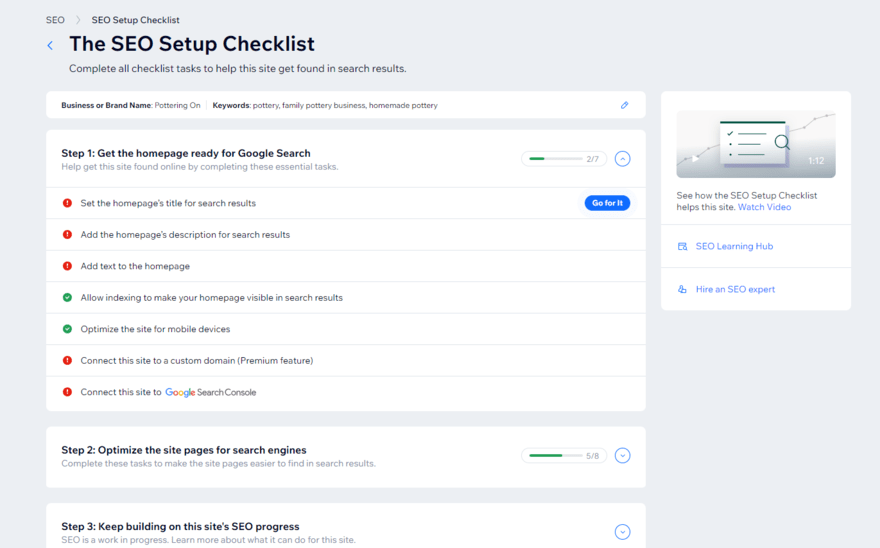
In addition to Wix’s SEO checklist, Wix provides a thorough SEO Learning Hub and access to a keyword research tool, Semrush. A recent addition to Wix’s SEO suite of tools is its AI Meta Tag Creator, freeing up your time by handing the task to AI. So, it’s no surprise that Wix scores a perfect 5 out of 5 in our SEO testing – with only Shopify sharing the same rating.
Organic search remains one of most impactful and cost-effective marketing channels available. Small businesses that invest the time and resources into building their online presence, and high-quality relevant content, not only build a stronger brand identity but also achieve sustained long-term success.

AI Tools
Website builders have been busy when it comes to adding AI tools to their features, rolling out new services like Wix’s AI Meta Tag Creator or Shopify Magic which helps you generate impactful product descriptions.
With Wix, you can use AI to build your website in just a few minutes (which is great for small businesses just starting out and looking to get online quickly). You can also make the most of Wix’s AI Text Creator to generate website copy, blog posts, product descriptions, and more.
However, when trialing the AI tool ourselves, we found the prompt to be a little restrictive since it made us choose a topic before adding keywords. That said, we liked the variety in the topic options, from “Team intro” to “FAQs”.
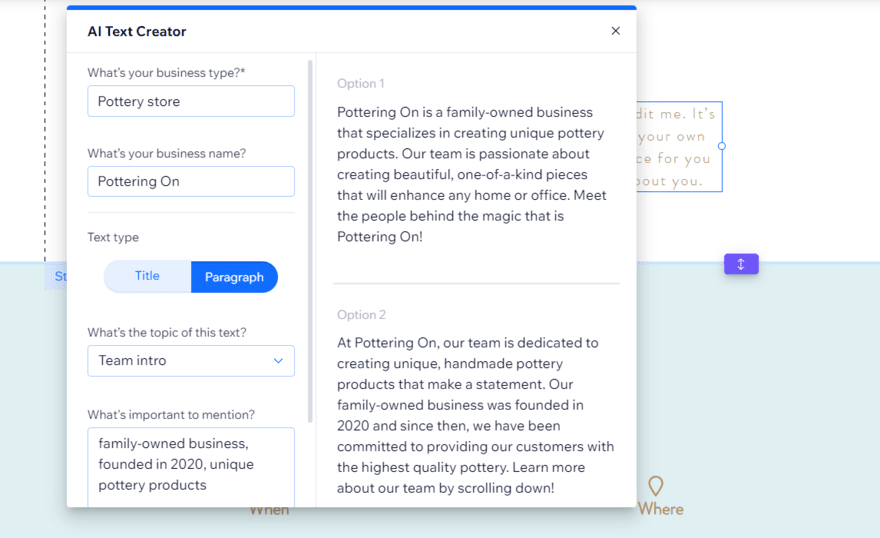
Whether you use AI to help create your entire website or write a fresh blog post, AI tools can be a useful way to cut down on time-consuming tasks and support your overall marketing strategy. The best part is that AI is still very new to the website builder industry, meaning AI products will continue to evolve and launch. For example, Squarespace has hinted at new AI features, including image support and an AI assistant in the editor.
Read our Wix Review for more information.
| Latest Wix News |
|---|
| In April, Wix had its Open Studio quarterly review, unveiling a host of new features for users. Hospitality businesses can now use Wix Hotels to manage their operations, while non-profit organizations can use Wix Donations to set up fundraising campaigns. Other features include Pitch studio for professional business pitches, a Figma plugin, and more. |
Best for Stylish Designs: Squarespace
Squarespace
Best for stylish designs
- Stylish templates
- Recommended by users
- Impressive backend
Free trial available
Paid Plans: $16 - $52 / month
Pros
-
Unique content tools
-
Ideal for creative businesses
-
Edit your site on the mobile app
Cons
-
Not suitable for larger stores
-
Less creative freedom than Wix
-
Bad for multilingual sites
We know that first impressions make all the difference, which is why template variety, sleek design elements, and quality content are so important. If this sounds like something your small business wants to prioritize, then Squarespace is your best bet for a stylish website.
We especially recommend Squarespace for artist websites and creative businesses – or anyone looking to focus on visuals and appearance over other factors, such as ecommerce or backend power.
Squarespace uses the popular drag-and-drop style editor – but with a twist. When editing, you’ll notice a grid-style overlay, helping you snap elements into position. While this might sound more restrictive than other website builders, Squarespace’s grid layout helps your elements align neatly with one another. You’ll find it difficult to create anything messy or bland when using Squarespace, once you combine its editor with the quality of its designs and templates.
- Squarespace pricing: Squarespace’s plans are great value for money and cost between $16 and $52 per month (billed annually). Though Squarespace’s first plan is only a dollar cheaper than Wix’s, it offers better quality features at a similar price point.
Template Quality
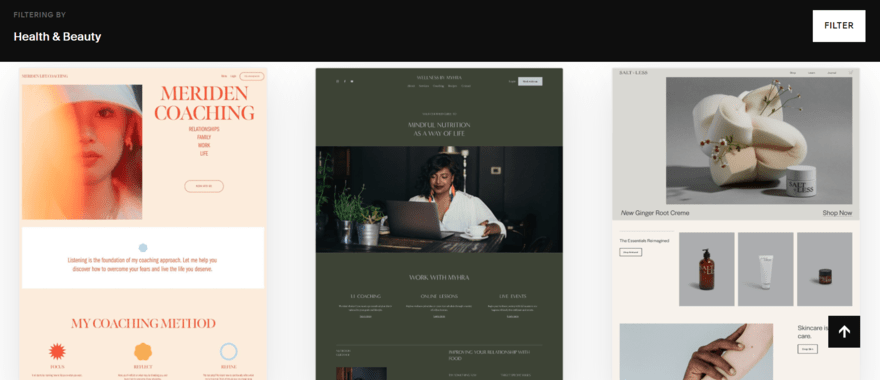
Squarespace’s templates cover a wide range of industries, including “Fashion”, “Media & Podcasts”, “Real Estate & Properties”, and “Travel”. You can browse its selection without needing to sign up, and each template works harmoniously with every Squarespace element, feature, and design option.
So, while you can’t technically change templates after your initial choice – this is also a limitation of Wix – you can create a completely new look without starting from scratch. You can even edit your Squarespace website on the go with its app.
Squarespace offers around 160 templates to choose from – a far cry from Wix’s 800+ templates, but we’re focusing on quality over quantity here. Alternatively, you can create something from scratch with Squarespace’s AI builder, Squarespace Blueprint. However, we’d recommend a premade theme if you value uniqueness and individuality since you can tweak these to suit your small business with ease. The AI-generated templates come out quite similar-looking.
Content Tools
What you put on your pages matters. Squarespace excels in this department, providing dozens of professionally designed elements to place on your pages, meaning you can display your content in a variety of ways. For example, an accordion is great if you want to hide additional content so visitors aren’t overwhelmed, or you could add a map to make the location of your small business really easy to spot.
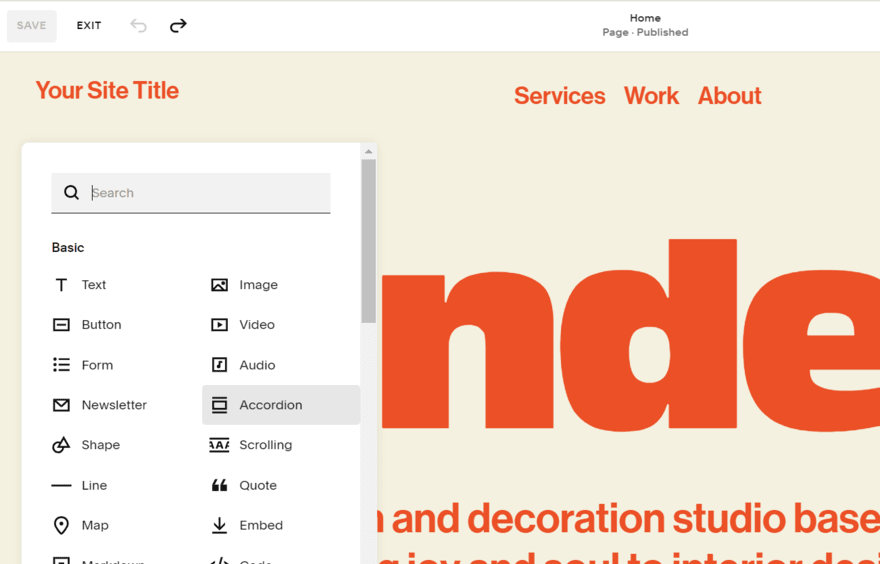
Using elements like these, or even carousels and charts, help make your content digestible to website visitors. People consume information in different ways, so breaking up your content into alternative formats ensures your key points are delivered.
Read our Squarespace Review for more information, or check out this Q&A from a real Squarespace user:
Q&A
1. When did you start using Squarespace and how long did setting up your website take?
When it comes to website timeline, we offer a package for both digital brand guidelines and branded website buildout that takes about 6 weeks total for both services.
With Squarespace, you can turn out a website in a few weeks or take your time, building out custom CSS and a lot of content. A website is constantly being evolved & changed once it is set live. Squarespace is dynamic in that you can do an out-of-box build in almost no time or create something truly unique and custom.
2. What is your favorite thing about using Squarespace?
Most of our clients are small-to-midsize businesses and startups. They don’t have in-house developers to manage the ongoing web changes and the simplicity of the Squarespace backend makes the changeover so simple that team members without Web Dev experience can feel empowered to make no-code changes themselves. Of course, we also can offer to stay on and support.
3. Were you satisfied with your finished website? Would you recommend Squarespace to other small business owners?
Check out Oyster Creative here
| Latest Squarespace News |
|---|
| Small businesses can monetize their website’s content with Squarespace’s new subscription features. The update lets you put blog posts behind a paywall, or use video subscriptions to charge for multimedia content. Through these new features, users have another way to start building an income from their website. For access, you’ll need to be on the Business plan and above, starting from $23 per month (billed annually). |
Best for Expert Guidance: GoDaddy
GoDaddy
Best for expert guidance
- Fast response time
- Best value for money
- 24/7 phone + live chat
Free plan available
Paid Plans: $9.99 - $20.99 / month
Pros
-
Excellent support for beginners
-
Quick way to get online
-
Interactive resources
Cons
-
Lacks quality design options
-
No email support
-
Wouldn't recommend for larger businesses
You don’t need to be an expert in building or running a website from the get-go. If you feel like you’ll want a helping hand, or appreciate a few educational resources to help you get started, then we recommend choosing GoDaddy which offers expert guidance and support.
- GoDaddy pricing: GoDaddy offers a free plan and three premium plans, ranging from $9.99 to $20.99 per month (billed annually). Support remains the same across all plans, so if you’re looking to get online for an affordable fee, we recommend GoDaddy’s cheapest option, the Basic plan. In fact, GoDaddy is the best value for money – GoDaddy offers nearly all of the same standard features that you’d find on Wix, Squarespace, or Shopify, such as SEO and marketing tools, but for a fraction of the price. That said, GoDaddy isn’t as cheap as Hostinger, which has plans starting at $2.99.
Help and Support
Sure, ecommerce tools or high-quality website features are important, but they’re worthless unless you understand how to use them.
Ideally, a website builder will offer a variety of help and support channels, such as live chat or phone support – website owners can then choose the channel they’re comfortable with, improving the overall customer service experience. This makes sure your needs and pain points are heard if you ever run into trouble, addressing issues quickly and freeing up valuable time that can be spent on running your business instead.
Here’s what you can expect from GoDaddy:
- 24/7 phone support
- Social media support
- 24/7 live chat
- Knowledge center with tutorials and guides
- Community forum
- Expert support from GoDaddy’s team to help with website maintenance, SEO, and more
Unfortunately, you can’t reach out to GoDaddy via email – if this is a support channel you require, we suggest looking at Shopify or Squarespace. Despite this, we were particularly impressed by GoDaddy’s live chat response time. In our tests, GoDaddy responded in less than 10 seconds.
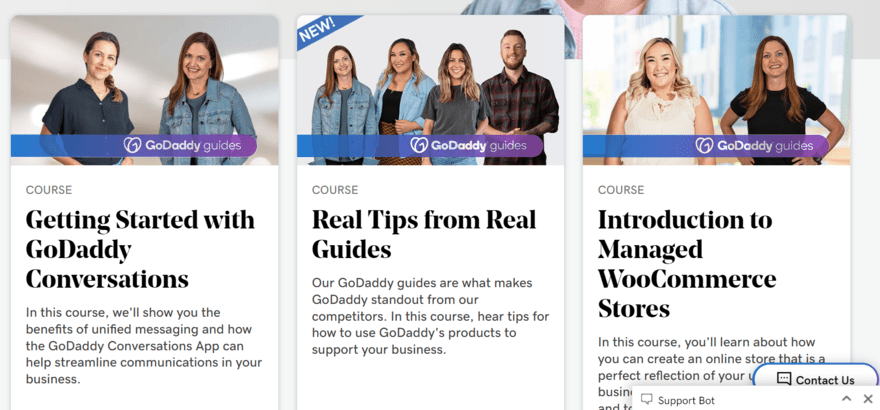
Read our GoDaddy Review for more information.
| Latest GoDaddy News |
|---|
| GoDaddy users can now access their Gmail and Microsoft 360 inboxes from the Conversations dashboard. With all of these conversations in one place, small business owners can easily access new messages, offer timely responses, and maintain positive relationships with customers. Though you can test out the tool on GoDaddy’s free plan, you need the Basic Plan and above to respond to messages. Prices start from $10.99 per month (billed annually). |
Best for Selling as a Side Hustle: Hostinger
Hostinger
Best for selling as a side hustle
- Impressive AI tools
- Affordable plans
- Beginner-friendly editor
Free trial available
Paid Plans: $2.99 - $109.99 / month
Pros
-
24/7 help and support
-
Quick way to get online
-
Great for simple sites
Cons
-
Limited scalability
-
No app market
-
Not for advanced designs
If you’re new to the world of selling online or want to test out your business idea as a side hustle or small business, then Hostinger offers brilliant AI tools and a beginner-friendly editor to help you get online quickly.
- Hostinger pricing: Hostinger is the cheapest website builder on this list, offering a 30-day free trial and two plans which range from $2.99 to $3.99 per month (billed annually). To sell online, you’ll need the $3.99 Business Website Builder plan to unlock Hostinger’s ecommerce features and AI tools.
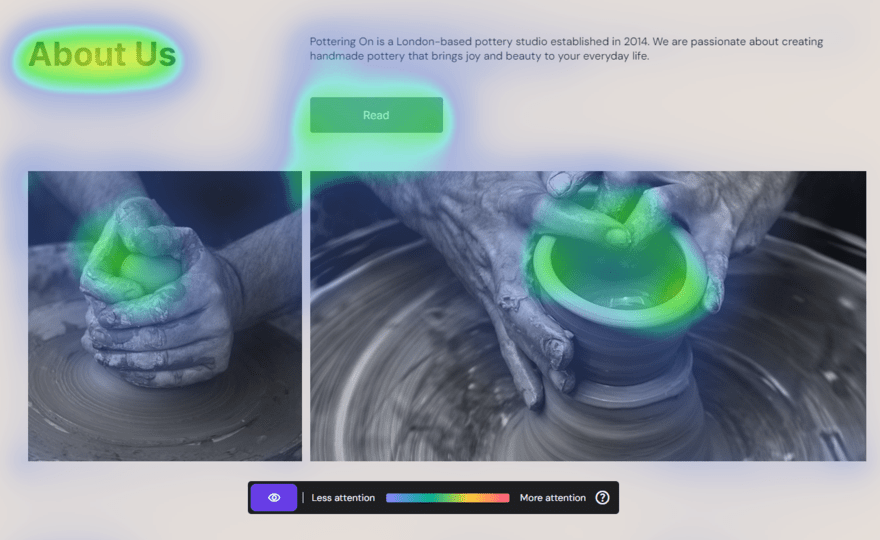
Time-Saving AI Tools
Hostinger relies heavily on its suite of AI tools, including an AI-powered website builder, but this makes it ideal for beginners and businesses looking to get up and running fast. If you use the Business Website Builder plan, you’ll have access to a range of features:
- AI Image Generator – create 50 images for free before you need to pay for additional credits (100 credits cost $4)
- AI Writer – populate your website with AI-generated copy and make sure to review the text for errors before publishing
- AI Page & Section Generator – get help when building your site’s structure
- AI Blog Post Generator – speed up your content creation using the power of AI
- AI Heatmaps – this is a great way to see how site visitors and customers are interacting with your website
- AI SEO Tools – Hostinger’s AI SEO Assistant can source keywords and create metadata for your pages, helping you optimize your pages
- AI Logo Maker – give your business or side hustle a professional look with a stylish logo
I think busy entrepreneurs would really benefit from Hostinger’s suite of time-saving AI tools. This is what makes Hostinger a smart choice for small businesses – it gives you a helping hand with things like website creation, content generation, and tracking customer engagement. Sure, with no email marketing it’s not the most scalable option, but when you’re a new business owner juggling all the tasks that comes with those early days of building and running a website, these AI tools can make a real difference and help you set up fast!

With these AI tools, Hostinger remains accessible for all, no matter your skill level. Using a simple prompt, you can generate images, text, blog posts, and more. This saves you time to build your inventory and tweak your business settings.
Read our Hostinger Website Builder Review for more information.
| Latest Hostinger News |
|---|
| Hostinger previously limited businesses to a maximum of 500 products. With its new Business Website Builder plan, you can now sell an unlimited number of products through your online store. |
Our Testing Methodology
We’ve conducted in-depth testing on the top website builders for small businesses to bring you data-led recommendations. Our goal is to help you find a website builder that meets your needs – we cover the good, the bad, and everything in between so you have all of the facts.
For small businesses, we look at seven core categories:
- Sales features – 38%
We look at the ecommerce features on offer to support your online store, from payment options to abandoned cart recovery.
- Website features – 20%
Looking at the quality and quantity of a website builder’s features, such as SEO, AI, and marketing.
- Help and support – 17%
We test a builder’s help and support options and knowledge centers because we know every small business might need a helping hand now and then.
- User experience – 10%
We look at a website builder’s ease of use and accessibility by testing the builders ourselves.
- Design functionality – 7%
This category covers a website builder’s aesthetic capabilities and design options, such as templates and mobile editors.
- Value for money – 5%
We review a website builder’s pricing plans and what you can get for your money.
- Customer score – 3%
To see how a website builder performs in the market and against competitors.
Following our testing, each website builder is awarded a rating out of five, which we then use to determine our rankings.
Best Small Business Website Builders: Summary
We’ve shared our recommendations depending on your small business needs, but our top choice is Shopify. It offers a powerful all-in-one solution for small businesses, performing well across our research categories. It also has the best sales features out of all the builders we tested – we highly recommend this builder if you’re looking to sell online.
If you’re still unsure, here’s a reminder of our top five small business website builders and how they can help you:
- Shopify is the best small business website builder overall, but we specifically recommend it for businesses looking to sell online
- Wix offers high-quality website features, helping small businesses promote their websites online
- Squarespace is ideal for designing a stylish website, especially for creative small businesses – see how well it performed in our best website builder for artists and best website builder for musicians research
- GoDaddy provides small businesses with responsive help and support, and its affordable plans make it the best value for money
- Hostinger offers great AI tools to save small businesses time when setting up an online store
See how Shopify, our recommended choice for small businesses, compares to the rest in our detailed comparison pages: Shopify vs Wix, Shopify vs Squarespace, and Shopify vs GoDaddy.
All of these website builders offer either a free trial or a free plan, so you can try them out first to help you find the right fit for your small business.








43 comments